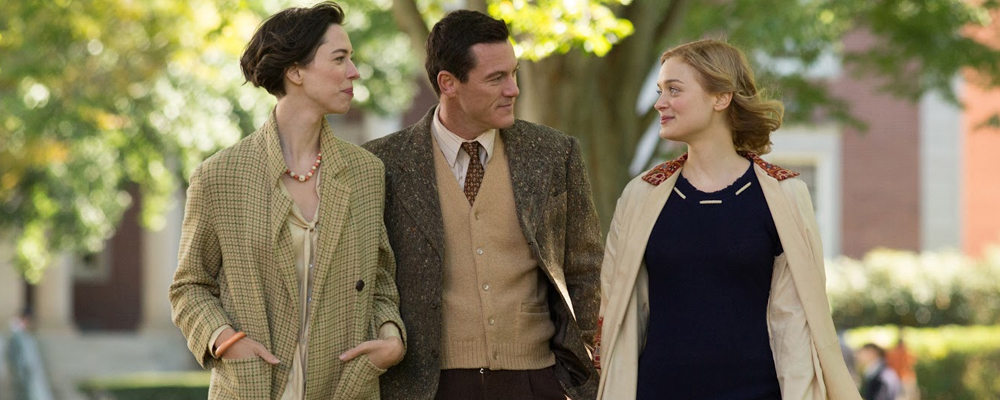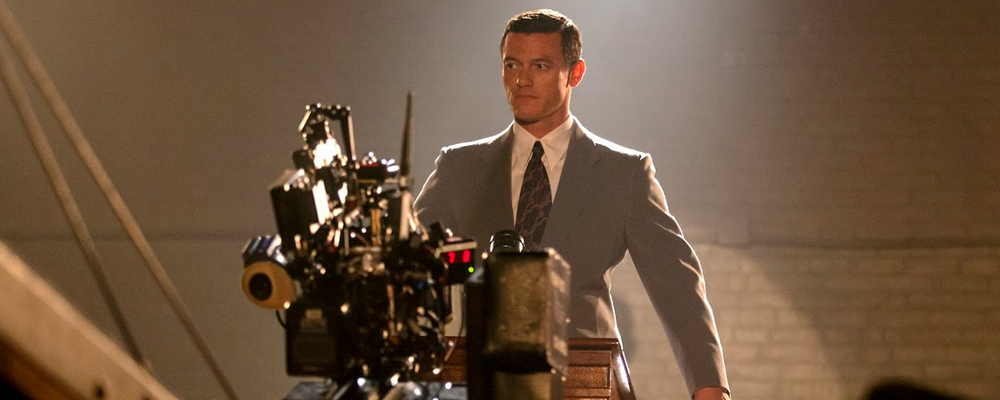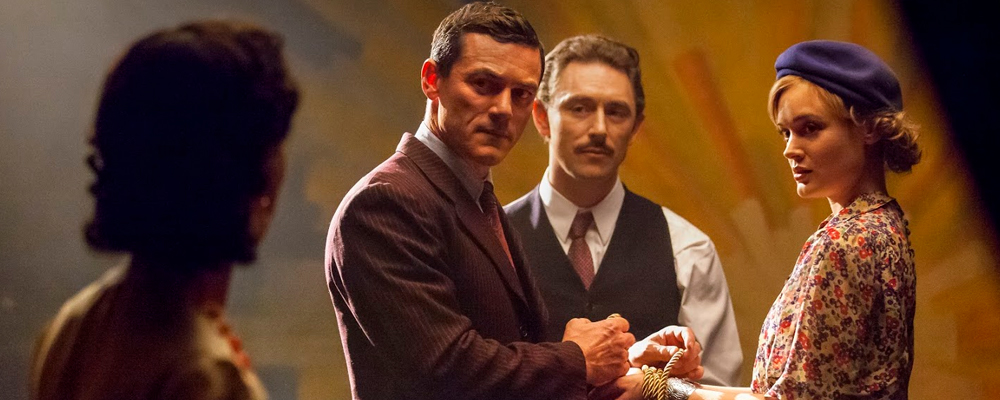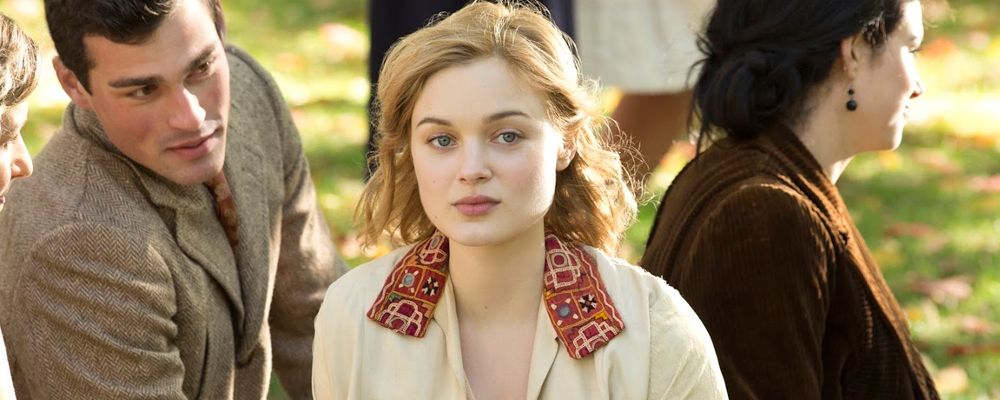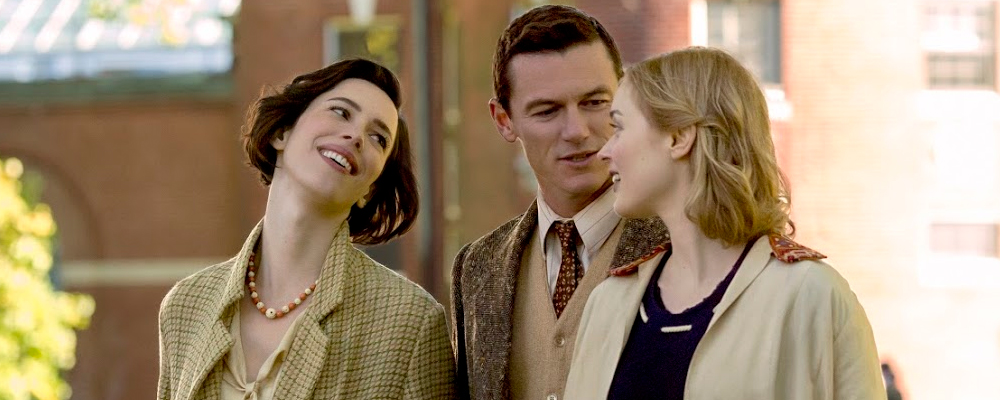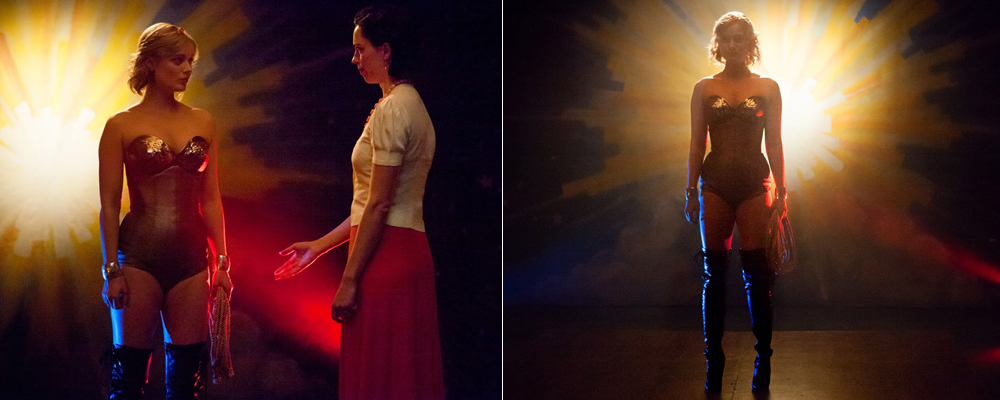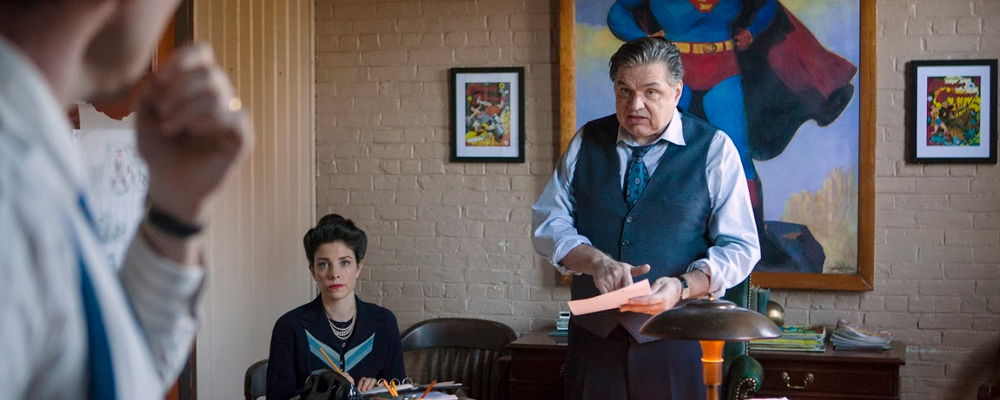‘Professor Marston and the Wonder Women’ Reveals the Controversial Origins of an Icon
Alci Rengifo
It is interesting how many of the socio-sexual debates now dominating the culture have been around since forever. “Professor Marston and the Wonder Women,” a somewhat detached but fascinating period drama, explores how the iconic “Wonder Woman” comic book flourished out of a polyamorous relationship. Going by this movie, the comic book invented by Dr. William Moulton Marston was revolutionary kink and sexual liberation disguised as pop entertainment. It’s a fascinating story that keeps you watching, even when the movie at times downgrades to the level of a typical period movie sparse on style. Indeed the premise is so engaging we want the movie to probe deeper into these characters instead of just observing them from a safe distance.
Luke Evans plays Marston, a professor and psychologist at Harvard gaining a reputation for his radically feminist ideas. He bases much of his teachings on the theory of DISC, which promotes the notion that social relations are based much on dominance, influence, steadiness and compliance. Marston believes that the nature of women offers many necessary correctives to male behavior and is often superior to it. Like Andre Breton, but from a more scientific angle, Marston believes it is women who can save humanity from utter destruction. He is married to fellow intellectual Elizabeth (Rebecca Hall), a blistering mind who believes she is a wife, not a jailer, and so she doesn’t object at first when Marston seems smitten by a new, luminous student named Olive Byrne (Bella Heathcote). Olive is the very definition of restrained purity. Once she falls into the orbit of Marston and Elizabeth as an assistant, sexual attraction starts to develop between the three and suddenly theory becomes reality. But their new arrangement won’t prove acceptable in a 1940s society still highly conservative in its approach to sex and gender relations. Fired from their jobs and needing income, Marston soon starts pondering the emerging, super popular world of comics.
“Professor Marston and the Wonder Women” is fascinating because of the core debates at the heart of the characters’ story. The burning question is can three people love each other at the same time. And if they do, is it even right? Writer and director Angela Robinson appears to agree with her characters full throttle, and so she approaches the story more as a distanced observer. Robinson’s work has mostly been on television, having directed episodes of “The L Word” and “True Blood.” Here she takes a less stylized approach and films this story with the warm, wet settings of standard period pieces. Like “The Imitation Game,” it’s the kind of film about identity that feels placed in a world devoid of color by the conservatism of the times. Even the music by Tom Howe is defined by a melancholic piano.
The film moves from one episode to another, and we feel at times as if we’re just getting a summary of these interesting lives. There is real tension in moments such as when Marston tests his most prominent invention- the lie detector test- on the two women. This moment subtly uncovers buried feelings that test the characters’ drive towards experimentation and we wish Robinson would push further into just what the background of these characters are, what hidden passions, experiences and scars have brought them here. There’s a great moment where Marston confronts Elizabeth after she meets Olive for the first time, and explicitly asks her not to sleep with him. “I thought you were incapable of sexual jealousy,” says Marston, “But not professional jealousy,” she replies. We want to know what makes these people tick. A director like Rainer Werner Fassbinder would have explored this story for all its human intensity and provocative ideas. But Robinson never dares to shake us. It’s simply straight drama from beginning to end.
Where Robinson truly makes the movie interesting is in the sections dealing with Marston’s creation of Wonder Woman. It’s here where the movie shines, demonstrating the hidden personal experiences behind pop history. There are brilliant moments where specific Wonder Woman comic book panels are used to show how Marston’s ideas about female liberation and sexual freedom were slyly incorporated. It’s no surprise that he’s dragged before a decency inquisition, where he’s interrogated by a typically judgmental bureaucrat. These scenes are a fascinating window into the recent American past, where comic books are literally thrown into a bonfire because of what a character represents. Robinson provides a brilliant contrast today, when “Wonder Woman” is a massive box office hit, but the character is now played by Gal Gadot as a kind of militarized Spartan. She remains a feminist icon, but stripped of the risky, hidden sense of kink and social rebellion Marston was going for.
“Professor Marston and the Wonder Women” is engaging in the history it has to tell. Even if it doesn’t grab you as pure cinema, the story it tells is interesting enough to spark interesting conversation. The performances also carry it along well with a Victorian elegance. It’s a window into another era, with surprising revelations about the roots of pop culture still defining our own age.
“Professor Marston and the Wonder Women” opens Oct. 13 in select theaters.

